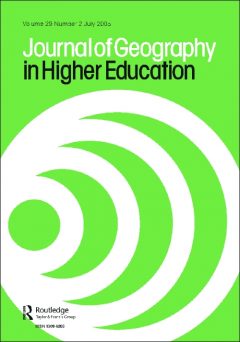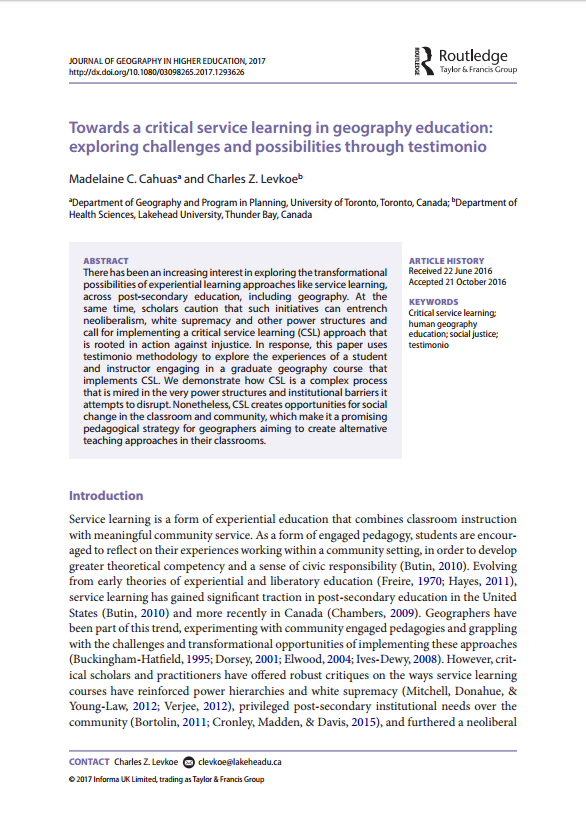 Over the past four years, CFICE has been looking at community-campus engagement (CCE) in all its forms. Experiential learning, a CCE method that has been embraced by many universities and colleges in such forms as community service learning, is one of the CCE methods CFICE has been exploring. In this journal article titled Towards a critical service learning in geography education: Exploring challenges and possibilities through testimonio, the authors critically assess the pros and cons of a method called critical service learning. This article was first published online February 17, 2017 in volume 41(2) of the Journal of Geography in Higher Education.
Over the past four years, CFICE has been looking at community-campus engagement (CCE) in all its forms. Experiential learning, a CCE method that has been embraced by many universities and colleges in such forms as community service learning, is one of the CCE methods CFICE has been exploring. In this journal article titled Towards a critical service learning in geography education: Exploring challenges and possibilities through testimonio, the authors critically assess the pros and cons of a method called critical service learning. This article was first published online February 17, 2017 in volume 41(2) of the Journal of Geography in Higher Education.
Read the full article by clicking on the image below, or browse through the abstract for more information.
Abstract
There has been an increasing interest in exploring the transformational possibilities of experiential learning approaches like service learning, across post-secondary education, including geography. At the same time, scholars caution that such initiatives can entrench neoliberalism, white supremacy and other power structures and call for implementing a critical service learning (CSL) approach that is rooted in action against injustice. In response, this paper uses testimonio methodology to explore the experiences of a student and instructor engaging in a graduate geography course that implements CSL. We demonstrate how CSL is a complex process that is mired in the very power structures and institutional barriers it attempts to disrupt. Nonetheless, CSL creates opportunities for social change in the classroom and community, which make it a promising pedagogical strategy for geographers aiming to create alternative teaching approaches in their classrooms.
